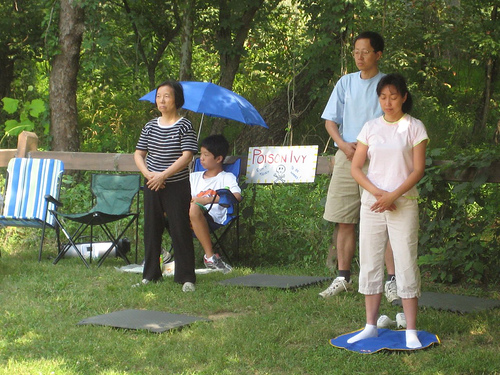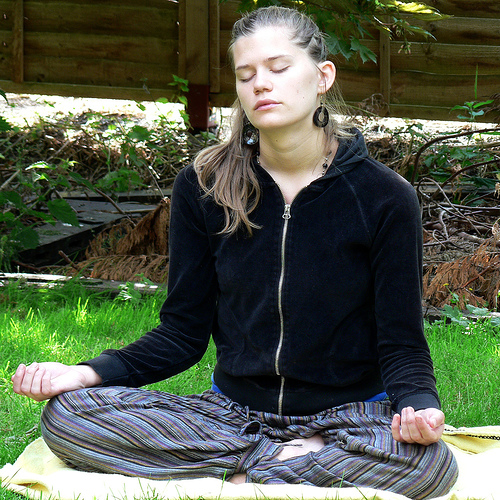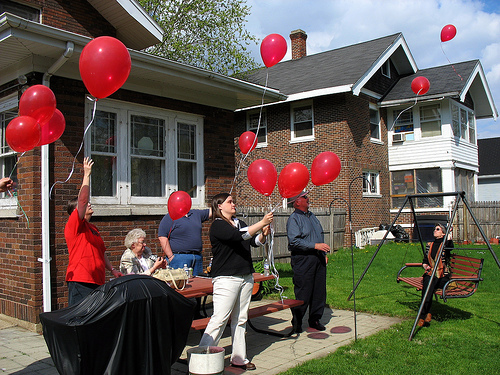Our culture has a love-hate relationship with task lists. Many of us make them, use them for a while, then eventually start avoiding them, trying not to think about how out of date they’re getting and what there might be on them that we really ought to be doing.
Or we try to do without task lists, using sticky notes and flagged e-mails and calendar reminders and stacks of papers that need something done with them and all kinds of other systems, only to find that there are still a lot of tasks we need to keep in our head, which keep spurring anxiety because when we don’t have time to do them right away, we worry we’ll forget about them completely: parking tickets, birthdays, that leak in the basement, finding out what that weird charge on the phone bill was, getting cholesterol checked …
Some background: all about task lists
I won’t go into a complete discussion of why I think the solution to this is a single, well-organized task list with categories, because I’ve already talked about a lot of basic task list issues in other posts, and I don’t want to waste your time with repetitions. If you haven’t read them yet, though, here are some articles from the wayback machine:
Why Task Lists Fail
4 Ways to Make Sure You Get a Task Done
The Eight Things You Can Do With a Piece of Paper
Getting Rid of the Little, Distracting Tasks
My Top 1 Task
Weed Out Task Lists With the 2-Minute Rule
Don’t Use Your Inbox as a To Do List
Useful Book: Getting Things Done
How I’m Keeping My E-mail Inbox Empty
When things start to slide
But even if you’ve followed my recommendations in these articles, do you ever find that your task management begins to slide-that you start falling back on notes or keeping things in your inbox, or you spawn new areas of your task list into which you throw tasks blindly, or you just try to keep everything in your head? Every once in a while this happens to me, so if it doesn’t sound familiar, my hat’s off to you. If it does sound familiar, though, then I may be able to offer an easy way out. All it takes is a little focus and time; it’s very low-stress.
The key is that a complete task management system relies on a certain amount of faith: you have to have faith that you’re actually going to get to at least some of the most important tasks on your list. If you lose confidence, if you start thinking you’re going to miss something on the list, then you may stop putting your more important items on the list, reasoning that it’s better to be a little flexible about what goes on the list than to risk not getting things done. As soon as you do that, you have a reason to avoid your list, because some of your most pressing tasks aren’t even on it, and this snowballs.
Or it can happen the other way around: you feel a little rushed and jot a few tasks on sticky notes or try to just keep them in memory, and then you realize that your list is no longer reliable and you lose confidence in it.
Fixing task list confidence
What’s the fix? Go back to basics, put your faith in your list, get everything on it, and pay attention to your list regularly. The steps are pretty easy:
- Whenever you think of something you need to do (or would like to do) that isn’t on the list, put on the list right away. If you can’t always do that, then you need a different system: it doesn’t help to have a task list that you can’t add to in real time.
- Keep a very small number of do-these-soonest items set apart. You can do this by assigning priorities, establishing a “very short-term tasks” category, tagging these top items, or any other means that works for you, but you need to be able to identify your top four to eight tasks. Any more than that and you’ll have a hard time doing the next step.
- Put the task you want to get done first at the top of the list. Ideally, put the task in order from want-to-get-done-first on down, though it’s really that top task that’s essential.
- As you get tasks done, bring more tasks into the “very short-term tasks” set and keep putting the next task you want to get done first at the top of the list.
- Don’t put important tasks anywhere else: just on your list. Between adding tasks, looking tasks up, and crossing tasks off, you’ll be forced to
- Visit your task list regularly, so that it never starts getting out of date.
- Finally, do maintenance on your task list, re-prioritizing and recategorizing as necessary, checking in on your pending items, deleting items that it turns out you don’t have to or want to do after all. This should be don’t-think-about-it work, which you do separately from actually getting your tasks done (except that if you have some very quick tasks, it’s often more efficient to do them then and there, if you have any time at all, than to keep shuffling them around-even if they’re not very high priority). This seventh step is optional: if you maintain a good “very short-term tasks” group and keep choosing one of those tasks to go to the top, the rest of your task list can be a mess-but it being in good order makes keeping the “very short-term tasks” group up to date much easier.
Worried it won’t get done? Overwhelmed by the list?
This solution solves two distinct problems: anxiety about not getting tasks done and being overwhelmed by everything on your list.
The anxiety is alleviated by identifying that top task. If it really is the thing you should be doing first, then you don’t have to worry that you’re neglecting something more important. By contrast, if you didn’t have a top task, then you might be tempted to pick off the most inviting or easy-looking tasks, or to avoid your task list altogether because of not wanting to face the worry.
The feeling of being overwhelmed is taken away when you just ask yourself simple questions like “Does this belong in my list of very short-term tasks?” and “Which of this handful of tasks should I do first?” Just like going through e-mail or papers, going through a task list can be especially stressful if you look at it as a whole, because no one can do a whole bunch of things at once (see “How to Multitask, and When Not To“). By simply going through your items in the order you find them, you can make individual decisions that are easier and more pleasant than trying to grapple with a stack of decisions could ever be.
Photo by heymrlady










